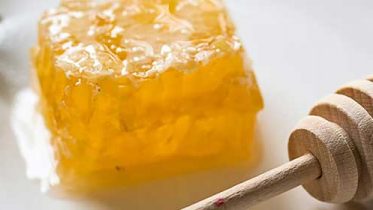Legal tips for influencers
- 14 December 2021
- Articles
By Andrea Birlanga. ClarkeModet
Influencers, people who have a high degree of credibility in a specific area, must consider certain particularities to protect themselves and their works. In the face of these figures, we must take into account certain aspects that encompass these figures:
- Content creators.
Here we must distinguish between when they make their videos, original content, or when they use videos, photographs, etc., of others for their own content.
In the latter case, they must have the express authorization of the original owner. In the same way, if someone uses your content, you must have the authorization thereof. In this sense, it is very common that by appearing in a photograph or having the mention in a book or article, the influencer may consider that he/she has the authorization to publish it. Even in these cases, he/she would require the owner’s consent. However, it may be used as long as it is immersed in any limits to the intellectual property contained in Chapter II of the Intellectual Property Law.
In addition, for better protection, it will be convenient to include a reservation of rights in the original videos or images. For this, the well-known symbol © may be included.
It should also be noted that the owner can be both the original author and the assignee of rights.
Moreover, the use of the internet and certain platforms must comply with the legal conditions of the specific site since certain legal notices establish the transfer of rights in favor of the platform.
- Legality and regulations in force.
They must comply with the advertising law and codes of conduct. In this sense, certain actions are both regulated and prohibited.
In the face of videos and photographs, we find the need to establish whether it comes to an advertisement or just a photograph or video content. The failure to point out there is an advertisement, either by placing in the video or photo the word ‘publi,’ ‘ad,’ ‘ad,’ or any designation that clarifies its objective, may incur a misleading advertising infringement. Therefore, they should identify those contents that have an advertising purpose.
In this sense, cases of surreptitious advertising of influencers have already been published by self-control for not properly signaling advertising is being made, as is the case of Paulina Eriksson. As self-control points out, she established the ‘AD’ notice at the end of the text and in a diluted manner.
The Code of Conduct on Influencers in force as self-control takes on particular relevance, in which certain rules are established regarding these figures of recent emergence.
Finally, they should also bear in mind the rules of protecting third parties’ honor, privacy, and image.
- Hatred in social media.
Hatred in social media is a critical point that is becoming increasingly important. It is about the influencers’ insults to a person and those propitiated among influencers.
Not long ago, we found several insults, many propitiated by the famous ‘haters,’ who try to sink the presence achieved by certain personalities through insults on social media.
Today it is already known that these behaviors are prosecutable under Spanish Law. So much so that they could be prosecuted by the Criminal Code itself, through the figure of insults (Art. 208 of Criminal Code (CC): An insult is an action or expression that injures the dignity of another person, undermining their fame or attacking their self-esteem.) or false accusation (Art. 205 CC: False accusation is the charge of a crime made with knowledge of its falsehood or reckless disregard for the truth.). In this sense, they should “surpass the barrier of objectivity” to be considered within this concept, i.e., an insult without a specific purpose would not fall within those legal concepts. In addition, more crimes can originate in social media, such as harassment (Art. 172 third CC: It will be punished with imprisonment from three months to two years or a fine of six to twenty-four months to the person who harasses another insistently and repeatedly, and without being legitimately authorized) and discovery and disclosure of secrets (Art. 197.7 CC: Anyone who, without the authorization of the person concerned, disseminates, discloses, or transfers to third parties images or audiovisual recordings of the person concerned which he has obtained with his consent in a home or any other place outside the scope of the gaze of third parties shall be punished by imprisonment of three months to one year or a fine of six to twelve months, where the disclosure seriously impairs that person’s privacy.).
In all the cases exposed, evidence will be necessary, whether screenshots, photos, or recordings, with a timestamp certificate, since it is very common that when legal measures are taken, people delete their comments.
Also, hate crime, private life or personal data disclosure, etc.
There are specific channels to denounce these events. Although the author of the comment could indeed delete it or the social media account, disappearing the illicit in that way, the best would be to go to the police and make a complaint so that the offender is tracked down and held responsible for the crime committed.
- Legal protection of the trademark.
Influencers, in the end, turn out to be people who recommend or influence people in the face of certain aspects of life, whether it is fashion, travel, electronics, etc. That is the reason when reaching certain importance, can be used some legal means to protect them. We highlight, among others:
- The protection of trademarks they own. Apart from their virtual platforms, many influencers have clothing brands or other companies that need protection so as not to be plagiarized.
- The protection of their names. There is the well-mentioned case of María Pombo, who registered her name with the SPTO. This strategy is essential when the person has a high degree of recognition. This protection against possible usurpers is of special practicality since through it will be easier to block accounts with their name, in addition to the case of wanting to give express authorization for the use of their name, etc.
However, this phenomenon has not only happened with influencers. After 7 years of legal battles, the singer Miley Cyrus has also managed to protect her name as a trademark in the EU. She won the battle due to her international reputation, making it impossible to confuse the public by being known both her name and her surname worldwide.
- As we mentioned above, another measure of protection is the so-called copyright. It is advisable to use it in photos and videos as rights reserved, thus hindering its use by unauthorized third parties.
- The right in the image, freedom of expression, and the right to privacy.
In this sense, it is necessary to bring up articles 18 and 20 of our Spanish Constitution in response to the rights in the image, freedom of expression, and the right to privacy.
Concerning the first of them, it is necessary to establish that consent will not be perceptive for certain cases, which is included in Law in the case of public and known figures. We find a clear example of this in fan accounts, where it would be impossible to ask the artist for consent for each image shared of him/her. However, the same case will not occur with the accounts that aim to belittle the influencer, so they have several channels to denounce certain acts, such as threats, humiliations, etc.
We find another fundamental right, freedom of expression. Based on it we find that, of course, influencers have this right. Although it is true that by being public figures, they should be careful with certain statements, such is the case of the influencer Naim Darrechi, who, after some very inaccurate statements about his private life, has managed to be the focus of numerous lawsuits, among them one of the Balearic Government. That complaint has already been admitted to processing for the alleged crime of discrimination.
In short, influencers have the same rights; however, these are differentiated due to their recognized reputation. As proof of so many particularities, there is the Code of Conduct carried out by self-control, in which only the figure of the influencer is regulated, specifically in the advertising sector.
On the other hand, there have already been resolutions regarding the right to privacy, specifically for children. That is the case of the Court of The Hague decision, October 1, 2018, where an influencer mother was sentenced to permanently remove the content she published on social media of her children 2 and 4 years old, also prohibiting her from publishing about them. In this sense, we also find the decision of section 12, Provincial Court of Barcelona n. 385/2018, May 15, which stated the obligation that one parent should have the consent of the other to disclose photos of minor children on social media.
As a matter of initial conclusion, we find that in general, influencers should consider the issue of data protection vs. freedom of expression and weigh the use of third-party personal data concerning the right to report that they may have.
Undoubtedly, the issue of rights over one’s own image is intimately related to the protection of data issues since the physical image of a person is personal data.
Relevant points.
In conclusion, influencers should address certain protection issues such as:
The trademark, as we have mentioned; the logo, that is, the trademark image; the designs, whether clothing or any other nature; the contracts, must be perfectly drafted and attend to all issues of image; intellectual property, etc. and finally, the image rights, to control their image.









